What is Hanukkah (or Chanukah)?
Hanukkah is not the Jewish version of Christmas.
Although it is celebrated the same time of year, Hanukkah commemorates the physical and spiritual victory of the Jews over the Greeks more than 2,000 years ago.
Hanukkah is also known as the:
Festival of Lights, since the flame in the Temple burned miraculously for eight days.
Feast of Dedication, since the Temple was rededicated after being desecrated.
Hanukkah is celebrated from 25 Kislev - 2 Tevet, according to the Jewish calendar, which is lunar, so it falls on different dates each year.
This year Hanukkah begins Thursday evening, December 21, 2000 and ends on Friday evening, December 29. Remember that in the Bible, the day begins at sundown.
How Hanukkah is celebrated:
Each evening at sundown, the Hanukkah menorah is lit. The menorah has 9 candles. The one in the middle (called the Shamash - or Servant Candle) is used to light all the others. The other eight (4 on each side, and a little lower than the Shamash) are for each of the eight days that the Temple flame miraculously burned. On the first night, only the far right candle is lit. The second night, two candles are lit starting at the far right. The third night, three candles, and so it goes until the eighth and final night when all eight candles are lit. They are lit for a half hour, during which we do no work, but instead we remember the work of God (His miracles and providence) and praise Him.
You know, the Servant Candle in the middle some may say reminds them of Christ, who is the light of the world, and from whom we receive light for our own lives. (John 1:4,8:12)
The lighting of the candles is accompanied by prayers, like:
Blessed are you, O Lord our God, King of the Universe,Who has made us holy through your WordAnd has instructed us to kindle the Hanukkah light.
The Story of Hanukkah
The Story of Hanukkah took place in the land of Israel long, long ago. In fact, it happened more than two thousand one hundred and fifty years ago, even before Jesus was born.
Back then, Israel did not have its independence, but was controlled by part of the Greek empire, since Alexander the Great had conquered most of the known world. One of the Greek kings that followed after Alexander was the Syrian king, Antiochus. He was the ruler of Israel at that time.
Antiochus was a very proud king, and he wanted everyone in his kingdom to think and live the way he did. So he made laws forcing people to give up their own beliefs and practices and to do things his way. And many people did what he said.
He tried to make God's people, the Jews, stop following the Bible. He tried to make them disobey God. He wanted them to stop worshipping the true God. And if they did not do what he said, they were persecuted. Sometimes the faithful were even killed. Unfortunately, many of the Jewish people did what Antiochus said. Some were even happy to follow Antiochus, because they liked Greek culture more than they liked following God.
Antiochus was upset that not all the Jews were following him, so he got more and more harsh in his treatment of them. He even went to the Temple of God in Jerusalem and stole all of the gold and silver and everything else of value. Then on the 25th day of the Jewish month of Kislev, he set up a statue of the Greek god Zeus in the holy Temple, and sacrificed an unclean pig on the altar. Then he sent idols to all the cities in Israel and ordered the Jews to sacrifice pigs and worship the Greek gods.
Now there were some Jews who remained faithful to God. One of these was an old priest name Mattathias. He lived in the village of Modin with his five sons. They were grieved at what they saw happening to the Jewish people throughout Israel. Then one day, the Greeks came to Modin and set up an altar with Greek idols right in the center of their town!
The King's officer called to Mattathias and his five sons to come out and sacrifice to the false gods. But the righteous priest called out, "even if every one in every nation obeyed the command of King Antiochus, neither I nor my sons will disobey the God of our fathers nor turn from God's laws even one small bit!"
Then Mattathias took a sword and killed both the king's officer who was trying to make them disobey God, as well as a Jew who was about to blaspheme God and sacrifice to the idols. Mattathias tore down the altar and then called in a loud voice, "Whoever is for God, follow me!" And then he took his sons and their families and they fled to the hills. And many people followed him. Thousands of Jews wanted to remain faithful to God. So they left the comfort of home and went into the wilderness where they could keep God's commands. But the armies of King Antiochus tried to find them and kill them.
Now Mattathias was very old and about to die, so he appointed his son Judah as the commander of the new army that was forming in the hills. And God showed his favor to the faithful Jews by giving them victory over the armies of Antiochus.
Before battle, Judah had his men fast and pray to God. They repented of their sin and asked God to give them victory. But when they saw the armies of Antiochus, many of the men were afraid because they were so outnumbered. But Judah declared, "The victory does not depend upon the size of the army, but it comes from the strength of the God of Heaven. They come with great pride, but we fight for our faith. God will defeat them, do not be afraid!"
Time and time again, by the power of God, Judah and his small army came out of the hills and defeated the great armies of Antiochus. In fact, Judah was so successful that he was given a new name. He was called Maccabeus (which in Hebrew means "Hammer"), because in battle he was like a hammer pounding away at the enemy.
Filled with anger, Antiochus sent an even larger army against them, and in the miraculous, decisive battle at Bet Tzur, the Jewish forces emerged victorious once again. From there, they marched on to Jerusalem, where they liberated the city and reclaimed the Holy Temple. They cleared the Sanctuary of the idols, they rebuilt the altar, and they prepared to resume the Temple worship services. Finally, the Temple of God was back in the hands of the faithful.
After cleaning the Temple, they looked for the pure, sacred olive oil to light the eternal flame that always burns in the house of God. To their dismay, only one small bottle of the special, holy oil could be found. It was enough oil to light the flame for just one day. And they knew it would take at least seven days for more of the holy oil to be prepared.
Undaunted, in joy and thanksgiving, they lit the flame and rededicated the Holy Temple on the 25th day of Kislev (exactly 4 years after Antiochus committed his blasphemous sacrilege). Each morning they expected to wake and find that the oil had burned out, but miraculously, each day the flame was still burning brightly. For eight days the oil burned until the high priest could finally consecrate more.
God's people again rejoiced and worshipped him for his constant protection and provision for them while they fought for truth and righteousness.
And that is why we celebrate Hanukkah. It reminds us of God's wonderful miracles on our behalf. It reminds us of God's protection throughout our lives. It reminds us to remain true to God even when the world around us tries to force us into a different mold. "Do not conform any longer to the pattern of this world, but be transformed by the renewing of your mind."
(Romans 12:1-2)
The lights of Hanukkah remind us that as followers of Jesus Christ, we are the light of the world. So we should do as Jesus told us: "let your light shine before others so that they may see your good deeds and praise your Father in heaven."
(Matthews 5:14-16)
VOTE 2016
9 years ago




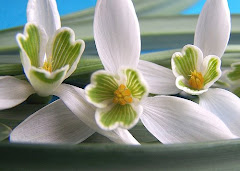
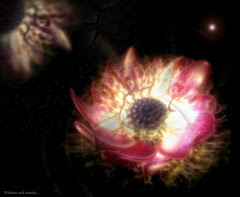
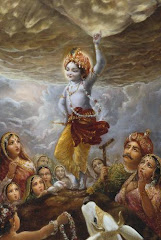
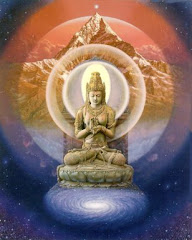



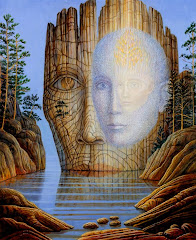









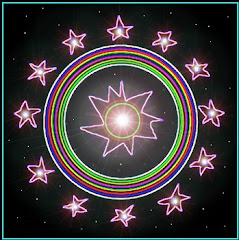










No comments:
Post a Comment